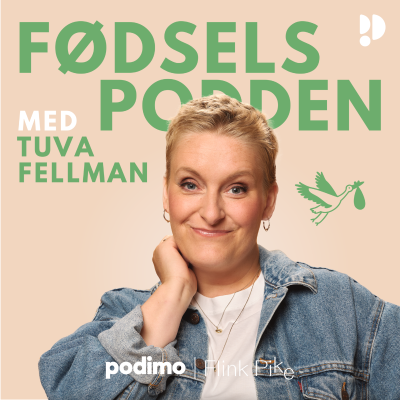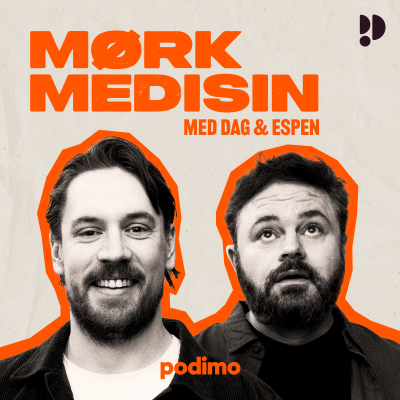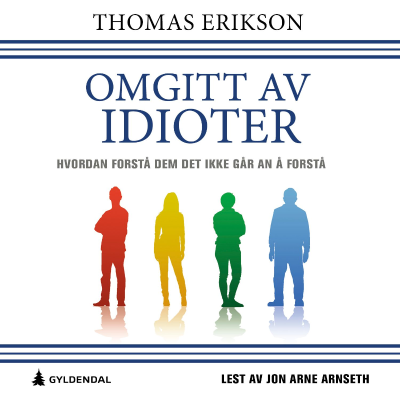
ClinicalNews.Org
Podkast av Ralph Turchiano
Tidsbegrenset tilbud
1 Måned for 9 kr
Deretter 99 kr / MånedAvslutt når som helst.

Mer enn 1 million lyttere
Du vil elske Podimo, og du er ikke alene
Vurdert til 4,7 stjerner i App Store
Les mer ClinicalNews.Org
My Personal Biomedical Research Feed - Ralph Turchiano, CEO Alchepharma
Alle episoder
287 EpisoderA new study in the journal Food Quality and Preference investigated if increasing the spiciness of a meal could influence eating behaviors and reduce how much food people consume. In a series of experiments, researchers had adults eat either a mild or a spicy version of beef chili or chicken tikka masala in a lab setting. The results were significant: when participants ate the spicy beef chili, they consumed 11% less food (about 46 grams) and ate 11% more slowly compared to when they ate the mild version. A similar outcome was observed with a reformulated chicken tikka masala, where the spicy version led to an 18% reduction in food intake (about 64 grams) and a 17% slower eating rate. Interestingly, this reduction in consumption was not because participants liked the spicy food less or drank more water. The findings suggest that the “oral burn” from capsaicin—the active component in chili peppers—directly leads to slower eating and bite rates, which in turn reduces overall food and energy intake. Disclaimers This information is for educational purposes only and should not be interpreted as medical advice. The study discussed was conducted on adults in a controlled laboratory setting. These findings may not apply to different populations or real-world dining situations. Always consult with a qualified healthcare professional before making any changes to your diet, supplement regimen, or treatment plan, especially if you have a medical condition or are taking medications. #Capsaicin #EatingRate #FoodIntake #Satiation #Paprika Cunningham, P. M., Smith, I. M., & Hayes, J. E. (2025). Increasing the spiciness of a lunch meal influences oral processing behaviors and decreases food and energy intake. Food Quality and Preference, 131, 105566. Capsaicin, paprika, oral burn, spice, chili pepper, eating rate, food intake, energy intake, oral processing, satiation, satiety, ad libitum intake, beef chili, chicken tikka masala, eating behavior, weight management, food formulation, paprika, non-textural manipulation, bite rate, meal duration, food pleasure, calorie reduction, appetite, human study, crossover design
A recent crossover randomized controlled trial published in the journal Nutrients investigated the effects of paprika xanthophylls (PX) on endurance and cognitive function in 21 healthy college students. Participants took a supplement containing 9 mg of PX daily for one month and were compared against a control condition (no intake). The study found significant improvements in physical endurance for the PX group, including higher exercise efficiency during both incremental (p=0.004) and constant load tests (p=0.030). Heart rate was also significantly lower during both the incremental test (p=0.032) and the constant load test (p=0.020). While there were no significant differences between the groups on cognitive tests, the PX group alone showed significant internal improvements in scores on the Trail Making Test Type B (p=0.034) and the Stroop test interference rate I (p=0.040). The authors speculate these benefits may be due to improved oxygen delivery efficiency. Disclaimers: "This information is for educational purposes only and should not be interpreted as medical advice." "The study discussed was conducted on a small sample of healthy college students and was predominantly male (18 males, 3 females). The authors note the results should be interpreted with caution and may not be generalizable to other populations." "This study did not use a placebo control group, which is a methodological limitation." "Always consult with a qualified healthcare professional before making any changes to your diet, supplement regimen, or treatment plan, especially if you have a medical condition or are taking medications." "This Channel does not provide medical advice." #PaprikaXanthophyll #EndurancePerformance #CognitiveFunction #ExerciseEfficiency #OxygenDelivery Kim D, Wadazumi T. Effects of Paprika Xanthophyll Intake on Endurance and Cognitive Function in College Students: A Crossover Randomized Controlled Trial. Nutrients. 2025; 17(17):2780. https://doi.org/10.3390/nu17172780 Alchepharma,Ralph Turchiano,citation,research,study,Paprika xanthophylls,capsanthin,capsorubin,endurance performance,cognitive function,exercise efficiency,oxygen delivery efficiency,DO2,red blood cell deformability,heart rate during exercise,college students,Stroop test,ventilatory threshold,antioxidant supplements,sports nutrition,ergogenic aids,brain oxygenation,executive function,neurocognitive function,microcirculation,athletic performance
A recent study in the journal GeroScience investigated how age-related declines in cellular energy, specifically the molecule Guanosine triphosphate (GTP), affect waste clearance in brain cells. Using hippocampal neurons from an Alzheimer's disease (AD) mouse model, researchers found a significant, age-dependent reduction in free GTP levels, which was accelerated in the AD model neurons. This energy deficit was shown to impair critical cellular processes like endocytosis and autophagy, leading to the accumulation of toxic amyloid-beta (Aß) aggregates and increased protein oxidation. Remarkably, the researchers then treated aged neurons for 24 hours with a combination of nicotinamide (a precursor to the energy-related molecule NAD+) and EGCG (a redox modulator found in green tea). This treatment was highly effective, restoring the depleted GTP levels in aged neurons all the way back to the normal, youthful levels seen in healthy, young neurons. This restoration of cellular energy enhanced the clearance of Aß aggregates and improved the viability of aged AD model neurons by 22%. Disclaimers • "This information is for educational purposes only and should not be interpreted as medical advice." • "The study discussed was conducted in vitro on neurons isolated from mice. Further research is needed to confirm these findings in humans." • "Always consult with a qualified healthcare professional before making any changes to your diet, supplement regimen, or treatment plan, especially if you have a medical condition or are taking medications." • "This channel is not monetized and does not provide medical advice." #GTP #Autophagy #AlzheimersResearch #Nicotinamide #EGCG Source: Santana, R. A., McWhirt, J. M., & Brewer, G. J. (2025). Treatment of age-related decreases in GTP levels restores endocytosis and autophagy. GeroScience. https://doi.org/10.1007/s11357-025-01786-4 Guanosine triphosphate, GTP, Alzheimer's disease, neuronal aging, autophagy, endocytosis, bioenergetics, nicotinamide, EGCG, NAD+, Nrf2, 3xTg-AD mouse model, proteostasis, amyloid-beta clearance, Aß aggregates, mitochondrial dysfunction, cellular energy, redox state, Rab7, Arl8b, neuronal viability, protein oxidation, neurodegeneration, in vitro study, hippocampal neurons
A recent study in Advanced Healthcare Materials reports a novel method for regenerating tooth enamel using water-based films made from keratin, a protein abundant in sources like wool. Researchers found that these keratin films can self-assemble into organized scaffolds that guide the growth of aligned apatite nanocrystals, mimicking natural enamel formation. When applied to artificially created early enamel lesions (white spot lesions), the keratin-based system was able to repair the damage, restoring both the tooth's optical appearance and its mechanical properties. Notably, the mechanical recovery was significant; nanoindentation tests showed the elastic modulus of damaged enamel increased from ~5 GPa back to ~53 GPa, and hardness recovered from ~0.1 GPa to over 1.0 GPa after treatment. These findings present a promising, simple, and potentially low-cost strategy for the clinical treatment of early dental caries. Disclaimers: • This information is for educational purposes only and should not be interpreted as medical or dental advice. • The study discussed was conducted in vitro (on extracted human teeth in a laboratory setting). Further research and human clinical trials are necessary to confirm these findings and evaluate safety and efficacy. • Always consult with a qualified dental professional before making any changes to your oral healthcare routine or treatment plan. • This channel does not provide medical advice. #Keratin #EnamelRegeneration #Biomineralization #DentalResearch #RegenerativeDentistry S. Gamea, E. Radvar, D. Athanasiadou, et al. “ Biomimetic Mineralization of Keratin Scaffolds for Enamel Regeneration.” Adv. Healthcare Mater. (2025): e02465. https://doi.org/10.1002/adhm.202502465 Alchepharma,Ralph Turchiano,citation,research,study,Keratin,enamel regeneration,biomimetic mineralization,apatite nanocrystals,hard tissue regeneration,dental caries,white spot lesion repair,protein scaffolds,self-assembly,spherulites,nanoindentation,Knoop microhardness,tooth decay treatment,regenerative dentistry,biomaterials,apatite nucleation,hierarchical structure,dental tissue engineering,keratin films,in vitro study,restorative dentistry,tooth repair
A study in the journal Nature has uncovered a significant link between the brain's natural lithium levels and Alzheimer's disease (AD). After analyzing 27 different metals in post-mortem human brain tissue, researchers found lithium was the only one significantly reduced in individuals with both mild cognitive impairment (MCI) and AD. The research also showed that amyloid-β plaques, a key marker of AD, trap lithium, which further lowers its availability for use by brain cells. To confirm this link, scientists conducted experiments on mouse models. They found that reducing the brain's lithium levels by roughly 50% caused an acceleration of AD-like pathology, including increased amyloid-β and phospho-tau deposits, greater neuroinflammation, and a more rapid decline in cognitive function. These effects appear to be driven, at least in part, by the over-activity of a kinase known as GSK3β. As a potential therapeutic strategy, the team tested a specific salt, lithium orotate (LiO), which is less likely to be sequestered by amyloid plaques. In AD mouse models, low-dose treatment with LiO successfully prevented memory loss and the accumulation of amyloid and tau pathology. The therapy was highly effective, reducing the Aβ plaque burden by about 70% in one model. Furthermore, LiO even reversed age-related memory decline in normal aging mice, pointing to a broader role for lithium in maintaining cognitive health. The findings suggest that a disruption of lithium balance may be a treatable early event in the development of Alzheimer's disease. Disclaimers "This information is for educational purposes only and should not be interpreted as medical advice." "The study discussed was conducted on human post-mortem brain samples and mouse models. Further research may be needed to confirm these findings in human clinical trials." "Always consult with a qualified healthcare professional before making any changes to your diet, supplement regimen, or treatment plan, especially if you have a medical condition or are taking medications. Lithium can be toxic at high doses and should only be used under medical supervision." "This channel does not provide medical advice." #Lithium #AlzheimersDisease #NeuroscienceResearch #CognitiveHealth #LithiumOrotate Aron, L., Ngian, Z.K., Qiu, C., et al. "Lithium deficiency and the onset of Alzheimer's disease." Nature (2025).

Mer enn 1 million lyttere
Du vil elske Podimo, og du er ikke alene
Vurdert til 4,7 stjerner i App Store
Tidsbegrenset tilbud
1 Måned for 9 kr
Deretter 99 kr / MånedAvslutt når som helst.
Eksklusive podkaster
Uten reklame
Gratis podkaster
Lydbøker
20 timer i måneden

































